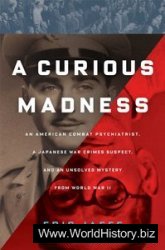Crescas’ major philosophical work Or Adonai was directed against those Aristotelians (e. g., Maimonides and Gersonides) who in his mind, used Aristotle’s arguments to undermine Judaism. In an attempt to weaken Aristotle’s hold upon Jewish philosophy, and to uphold the basic dogmas of Judaism, Crescas subjects Aristotle’s physics and metaphysics to a trenchant critique. The work is divided into four books that analyze (1) the roots or first principles (shorashim) of Scripture, (2) the fundamental beliefs or cornerstones (pinnot) of Scripture, (3) the true doctrines of Scripture (de’ot amitiot), and (4) some nonobligatory speculations in Scripture (de’ot usevarot). This distinction is based on Crescas’ belief that the principal beliefs of Judaism are those without which there could be no revealed religion in general, or Judaism in particular. All of his anti-Aristotelian diatribes thus occur against the backdrop of Scriptural concerns. As Harvey has pointed out (Harvey 2007), Crescas’ critique of Aristotelianism was momentous in that while arguing for the liberation of Scripture, he was arguing as well for the liberation of science. Thus, many of his anti-Aristotelian arguments contain what turn out to be scientific innovations.
Book One of Or Adonai addresses the roots of Jewish belief, central of which is belief in God. Maimonides had provided Aristotelian arguments for the existence, unity, and incorporeality of God, maintaining that correct beliefs about God must be based in sound Aristotelian principles; these arguments were based on 26 propositions drawn from the corpus of Aristotle’s physics. Crescas, however, objected to Maimonides’ approach, arguing that God’s existence, unity, and incorporeality cannot be based on philosophical proofs, for these ‘‘proofs’’ are themselves based on faulty propositions. Crescas thus proceeds to show the weaknesses inherent in each of the 26 propositions adduced by Maimonides. For example, Crescas rejects Aristotle’s theory of place and argues that place is prior to bodies: in contradistinction to Aristotle’s conception of place, space for Crescas is not a mere relationship of bodies but is the ‘‘interval between the limits of that which it surrounds’’ (Wolfson 1929:195). Space is seen by Crescas as an infinite continuum ready to receive matter. Because this place or extension of bodies is identified with space, there is no contradiction in postulating the existence of space not-filled with body, i. e., the vacuum (see Wolfson 1929:3869). Crescas, in fact, assumes that place is identical with the void, on the grounds that ‘‘place must be equal to the whole of its occupant as well as to [the sum of] its parts’’ (Wolfson 1929:199).
Further, Crescas rejects Aristotle’s theory of time, arguing that the correct definition of time is that it is the measure of the continuity of motion or of rest between two instants. By hitdahequt, Crescas means to emphasize that time is not to be identified with physical motion or bodies, but with the duration of the life of the thinking soul. Time is ‘‘indeed measured by both motion and rest, because it is our conception (tziyurenu) of the measure of their continuity that is time’’ (Wolfson 1929:289). On this basis, Crescas concludes that ‘‘the existence of time is only in the soul’’ (ibid). It is because humans have a mental conception of this measure that time even exists. The continuity of time depends only upon a thinking mind, and is indefinite, becoming definite only by being measured by motion. Were we not to conceive of it, there would be no time. It is in this context that Crescas comes closest to reflecting his near scholastic contemporaries Peter Auriol and William of Ockham, both of whom develop a subjective theory of time.
In book two of Or Adonai, Crescas lists the six beliefs that are intrinsic to a notion of divine revelation: God’s knowledge of particulars, Providence, God’s power, prophecy, human choice, and the purposefulness of the Torah. Each of these beliefs is then analyzed in light of the tension between religion and reason. In each case, Crescas reintroduces his rejection of an Aristotelian intellectualis-tic conception of the relation between God and humanity. Versions of this intellectual Aristotelianism can be found in Crescas’ predecessors Maimonides and Gersonides, and includes the following sorts of positions: God does not know particulars; God cannot exercise providence over particulars; God’s power is limited by the laws of nature; prophecy is a natural phenomenon that requires intellectual preparation on the part of the prophet; free will is possible, since God has no knowledge of future events; and the purpose of Torah is to provide intellectual, as opposed to moral, perfection. Crescas rejects their views, arguing that God acts toward the world with goodness, love, and grace. Against Gersonides, for example, Crescas affirms God’s knowledge of future contingents, even those determined by human choice. He then argues that human freedom is only apparent and not genuine: humans think they are free because they are ignorant of the causes of their choices. Human responsibility for action lies not in the actual performance of the action, but rather in the agent’s acceptance of an action as its own. The feeling of joy an agent feels at acquiescing to certain actions, e. g., fulfilling the commandments, is the reward for that action. So too, God experiences joy in giving of himself to the world (Crescas 1990:123-205).
Of the non-fundamental obligatory beliefs, Crescas in book three distinguishes those beliefs that are independent of specific commandments (e. g., creation, survival of the soul, reward and punishment, resurrection) from those dependent on specific commandments (e. g., the efficacy of prayer, the spiritual value of the festivals). The denial of even the non-fundamental beliefs, according to Crescas, leads to heresy. In this context, his discussion of the doctrine of creation is noteworthy. In contradistinction to Maimonides who in Guide 2:25 argued that the doctrine of creation is necessary to uphold the validity of Judaism, Crescas argues that one could believe in revelation even if the world were eternal. In fact, he goes on to argue that the doctrine of creation is best understood as eternal emanation of the world: the world is both created and eternal (see Crescas 1990:273-318; Feldman 1980).
Many scholars have tried to trace the formative influences upon Crescas’ thought. In his recent study of Crescas’ Sermon on the Passover, Ravitzky has argued that Crescas’ discussion of will appears to reflect a connection to Latin scholasticism in its acceptance of Scotist ideas regarding the moral and religious primacy of the will (Ravitzky 1988:viii). After noting important similarities and differences between Aquinas’ and Crescas’ conceptions of belief, Ravitzky turns to a comparison of Scotus and Crescas, arguing that both philosophers reject their predecessors’ insistence upon an intellectualist conception belief that leads to ultimate felicity, and replace it with a conception of belief based on the primacy of will (Ravitzky 1988:54-60).
In a similar vein, Harvey suggests that Crescas’ work was ‘‘perhaps connected in some way with the pioneering work in natural science being conducted at the University of Paris’’ (Harvey 1998:23). More specifically, Harvey has compared the works of the two contemporaries Nicholas Oresme and Crescas, arguing that they are the two most important philosophers representing the new physics. Working in Pamplona in the 1330s, both argue for the existence of many worlds, both claim that many worlds do not imply existence of more than one God, and both argue that generation and corruption in the sublunary world is evidence for successive worlds. Crescas himself describes his analysis and critique of Aristotelian science as having ‘‘no small benefit for this science’’ (Wolfson 1929:180). In fact, it can be argued that Crescas’ critique of Aristotle helped lay the groundwork for the abandonment of Aristotelian science in subsequent centuries.
See also: > Gersonides > Moses Maimonides > Time




 World History
World History









